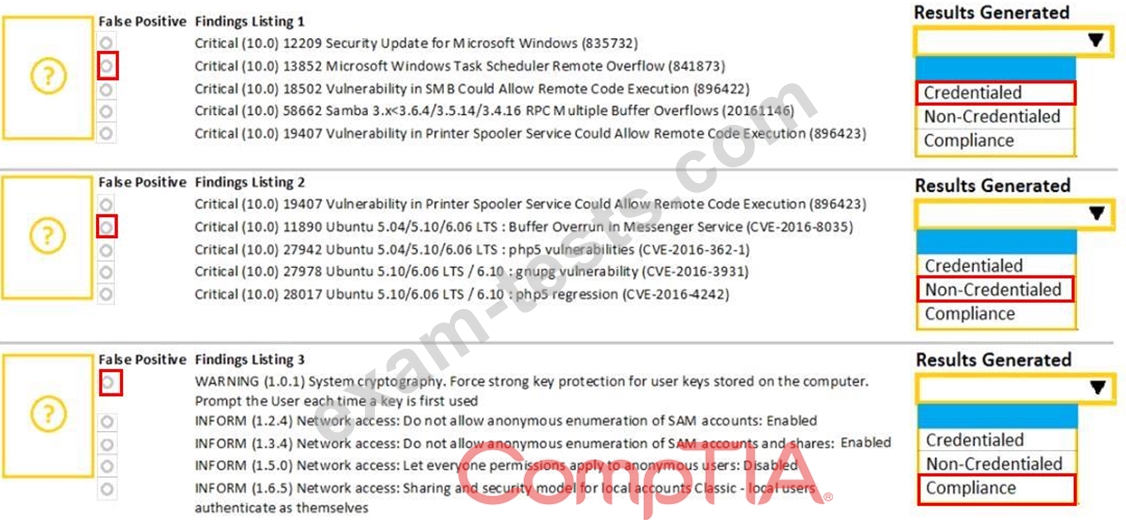Question 66
A security analyst recently used Arachni to perform a vulnerability assessment of a newly developed web application. The analyst is concerned about the following output:

Which of the following is the MOST likely reason for this vulnerability?

Which of the following is the MOST likely reason for this vulnerability?
Question 67
A security analyst is investigating a malware infection that occurred on a Windows system.
The system was not connected to a network and had no wireless capability Company policy prohibits using portable media or mobile storage.
The security analyst is trying to determine which user caused the malware to get onto the system.
Which of the following registry keys would MOST likely have this information?
The system was not connected to a network and had no wireless capability Company policy prohibits using portable media or mobile storage.
The security analyst is trying to determine which user caused the malware to get onto the system.
Which of the following registry keys would MOST likely have this information?
Question 68
A development team has asked users to conduct testing to ensure an application meets the needs of the business. Which of the fallowing types of testing docs This describe?
Question 69
SIMULATION
You are a cybersecurity analyst tasked with interpreting scan data from Company A's servers.
You must verify the requirements are being met for all of the servers and recommend changes if you find they are not.
The company's hardening guidelines indicate the following:
* TLS 1.2 is the only version of TLS running.
* Apache 2.4.18 or greater should be used.
* Only default ports should be used.
INSTRUCTIONS
Using the supplied data, record the status of compliance with the company's guidelines for each server.
The question contains two parts: make sure you complete Part 1 and Part 2. Make recommendations for issues based ONLY on the hardening guidelines provided.
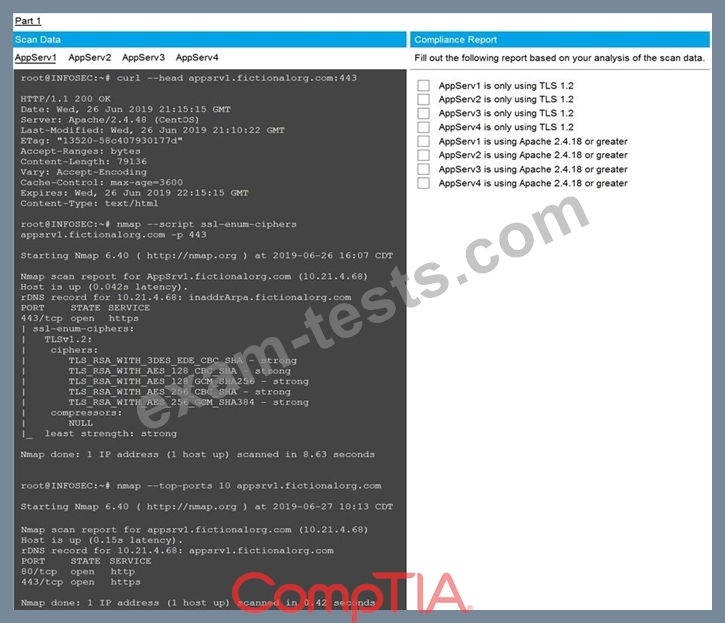
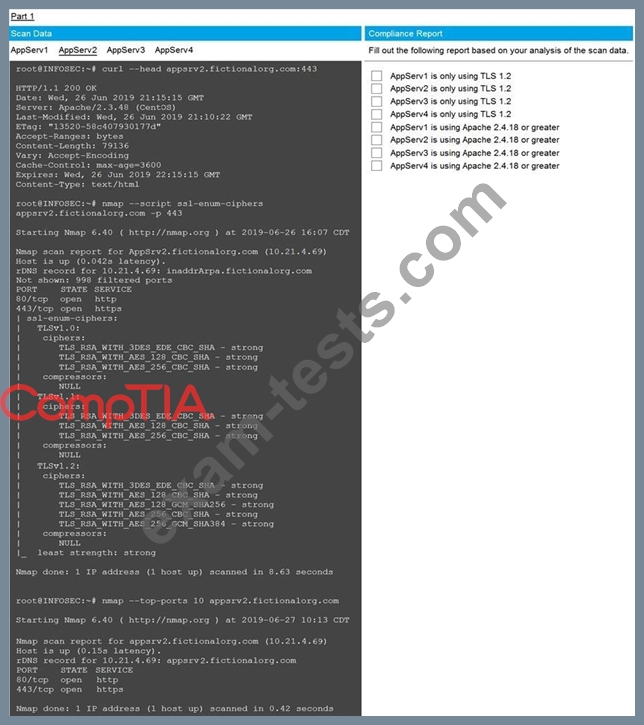
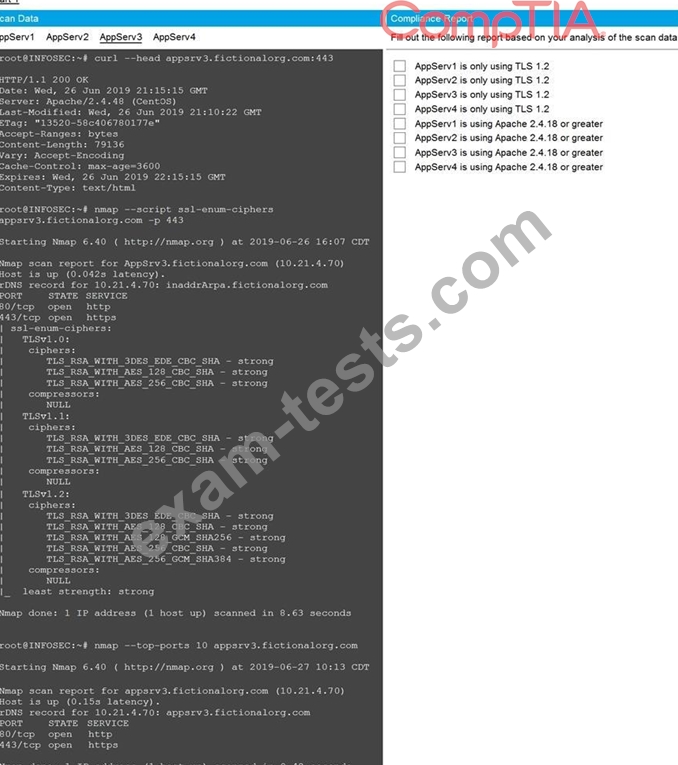
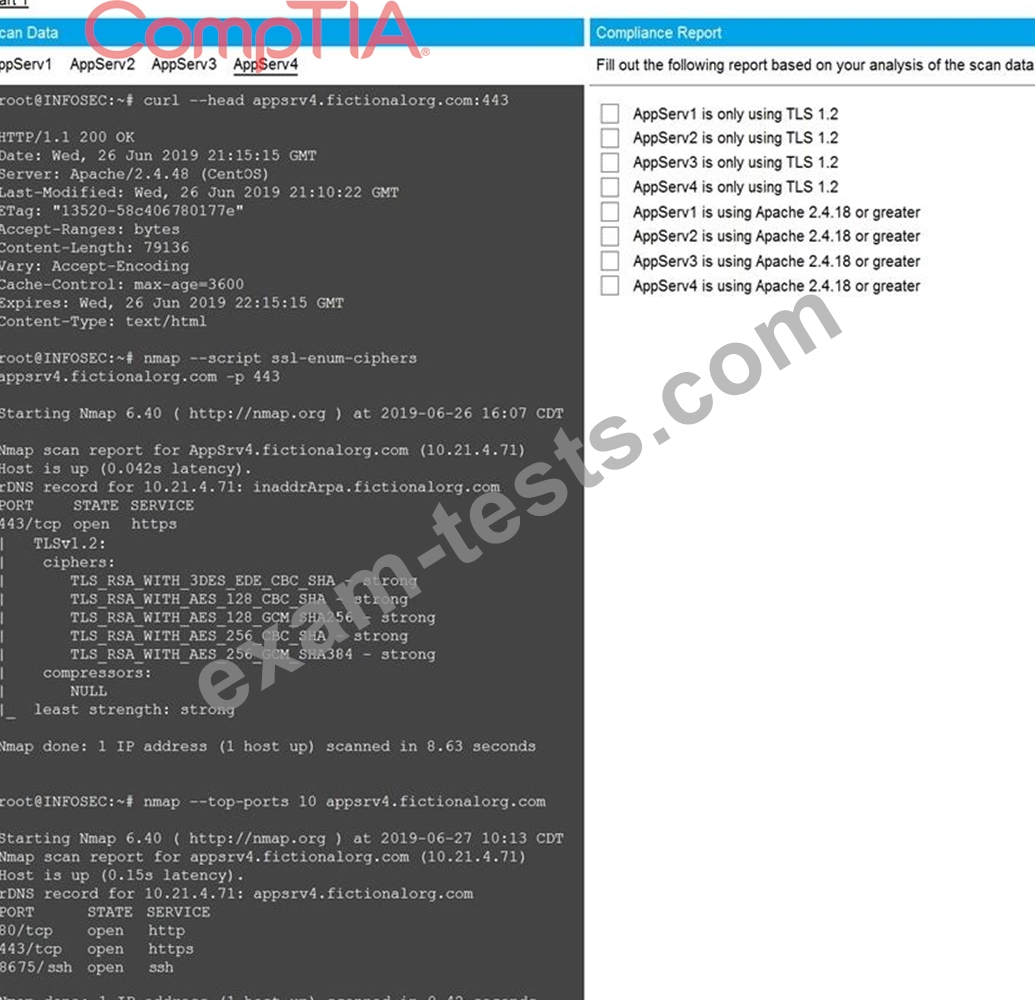
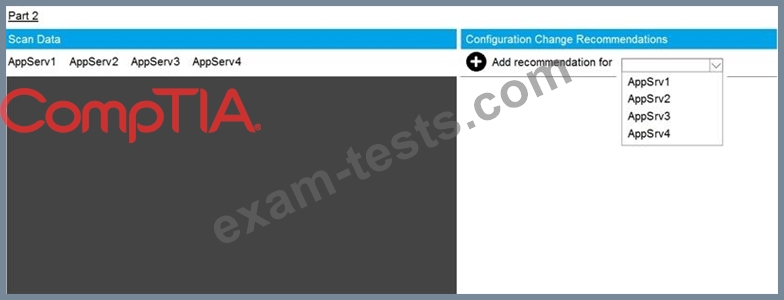
You are a cybersecurity analyst tasked with interpreting scan data from Company A's servers.
You must verify the requirements are being met for all of the servers and recommend changes if you find they are not.
The company's hardening guidelines indicate the following:
* TLS 1.2 is the only version of TLS running.
* Apache 2.4.18 or greater should be used.
* Only default ports should be used.
INSTRUCTIONS
Using the supplied data, record the status of compliance with the company's guidelines for each server.
The question contains two parts: make sure you complete Part 1 and Part 2. Make recommendations for issues based ONLY on the hardening guidelines provided.





Question 70
A security analyst performs various types of vulnerability scans. Review the vulnerability scan results to determine the type of scan that was executed and if a false positive occurred for each device.
Instructions:
Select the Results Generated drop-down option to determine if the results were generated from a credentialed scan, non-credentialed scan, or a compliance scan.
For ONLY the credentialed and non-credentialed scans, evaluate the results for false positives and check the findings that display false positives. NOTE: If you would like to uncheck an option that is currently selected, click on the option a second time.
Lastly, based on the vulnerability scan results, identify the type of Server by dragging the Server to the results.
The Linux Web Server, File-Print Server and Directory Server are draggable.
If at any time you would like to bring back the initial state of the simulation, please select the Reset All button. When you have completed the simulation, please select the Done button to submit. Once the simulation is submitted, please select the Next button to continue.
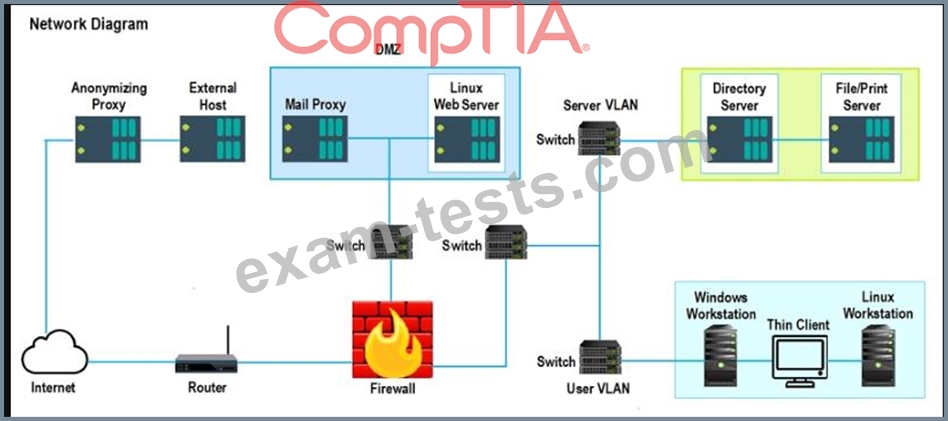
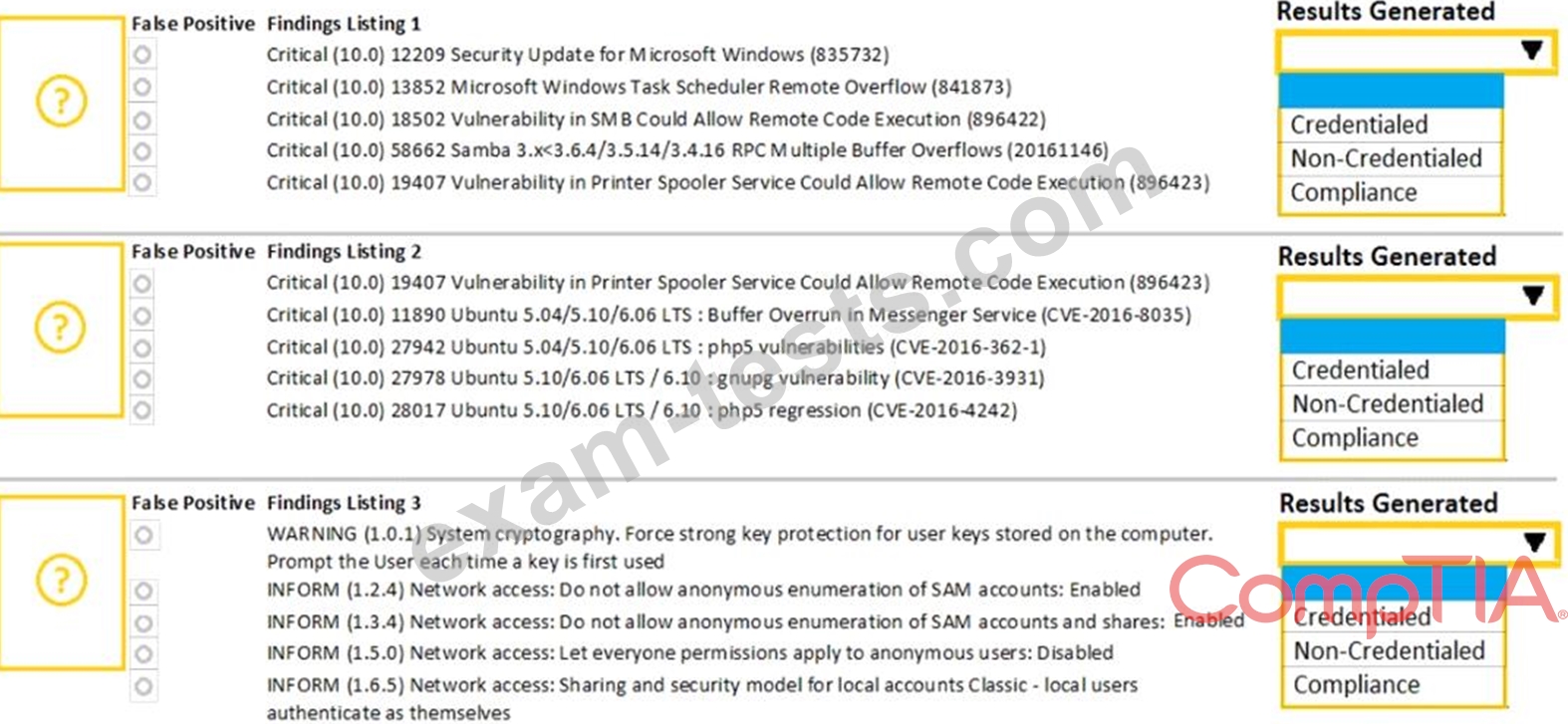
Instructions:
Select the Results Generated drop-down option to determine if the results were generated from a credentialed scan, non-credentialed scan, or a compliance scan.
For ONLY the credentialed and non-credentialed scans, evaluate the results for false positives and check the findings that display false positives. NOTE: If you would like to uncheck an option that is currently selected, click on the option a second time.
Lastly, based on the vulnerability scan results, identify the type of Server by dragging the Server to the results.
The Linux Web Server, File-Print Server and Directory Server are draggable.
If at any time you would like to bring back the initial state of the simulation, please select the Reset All button. When you have completed the simulation, please select the Done button to submit. Once the simulation is submitted, please select the Next button to continue.


Premium Bundle
Newest CS0-002 Exam PDF Dumps shared by BraindumpsPass.com for Helping Passing CS0-002 Exam! BraindumpsPass.com now offer the updated CS0-002 exam dumps, the BraindumpsPass.com CS0-002 exam questions have been updated and answers have been corrected get the latest BraindumpsPass.com CS0-002 pdf dumps with Exam Engine here:


